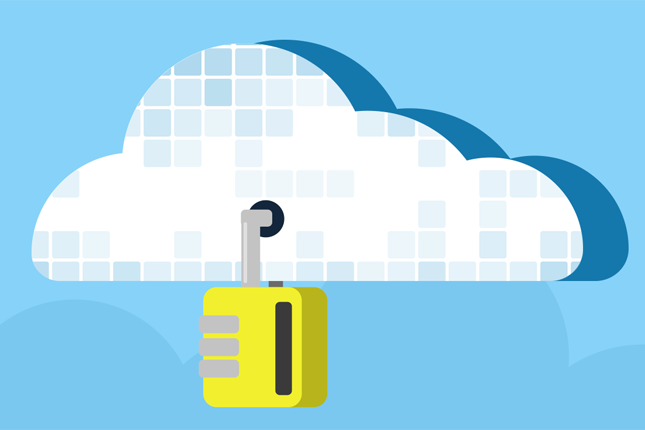
Businesses are no longer confusing “the cloud” with those puffy white things in the sky. For many, the cloud is a backbone business tool. Yet, some worry about storing their data on the Internet using cloud technologies. Consider these approaches to boost business confidence in cloud data security.
#1 Encrypt Business Data
The cloud is a lucrative potential target for cybercriminals. Many enterprises have turned to this technology. In North America nearly 60% of enterprises now rely on public cloud platforms. That’s a fivefold increase over five years, according to Forresters’ Cloud Computing 2019 Predictions.
Some cloud service providers will promise to encrypt your data in transmission. Take this precaution further by encrypting data before it’s sent to the cloud. Encrypting data turns it into another form of code. Only the person with the correct password can decrypt it. If you use a modern encryption standard, it will be extremely challenging for a hacker to break the code.
Plus, encrypting on your end first ensures the cloud storage provider only stores encrypted data. So, if their storage gets hacked, or one of their employees goes rogue, they aren’t able to read your business data. That is unless they have the decryption password. Make sure the password is strong. Don’t be one of those people still using “password” or “123456789”!
#2 Have a Backup
Many businesses store data on the cloud as a precaution to have redundancy. Yet, it’s a good idea to have another backup copy offsite too. Just in case.
In some cases, businesses have migrated almost entirely to the cloud. All their software and files live on the cloud and they have no other copy. Don’t let this happen to you. We recommend the 3-2-1 backup strategy. This means, even for cloud-reliant businesses, having 3 copies of your data. One would be on the cloud. The other two (2) would be on different devices (e.g. on your local computer and on a backup drive).
#3 Know your Responsibilities
The cloud is a shared technology model. Partner with a cloud service provider with stringent security. At the same time, don’t count on the cloud provider to do everything. Clearly identify security roles and responsibilities. The Cloud Security Alliance reminds us that this can depend on the cloud model you’re using:
Cloud technology offers several advantages:
The cloud revolution has come. When you join the ranks of those migrating data to the cloud, do so with these safety suggestions in mind.
Need help securing your data? Whether you’re backing up locally or on the cloud, give us a call at (850) 659-6649.